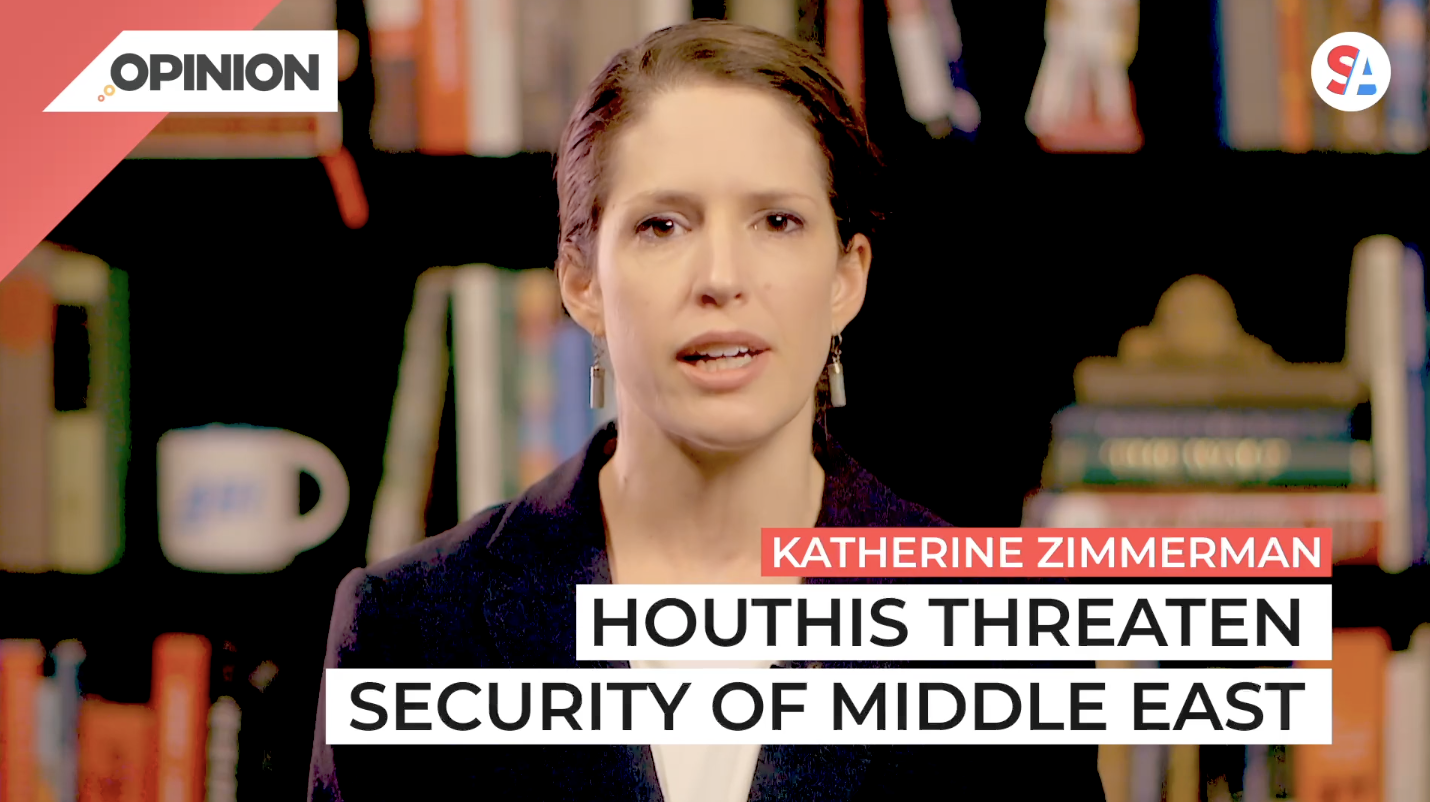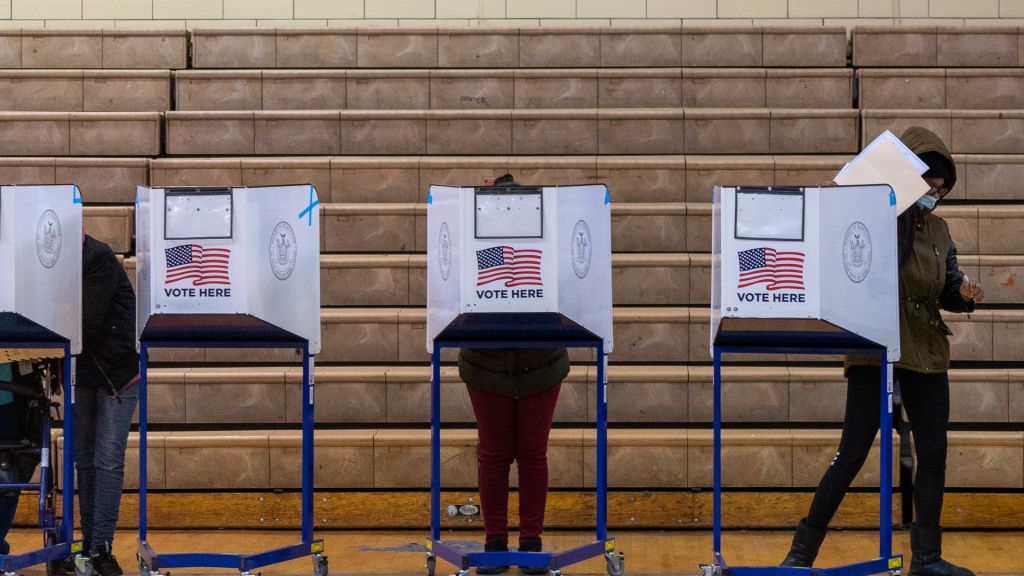
Commentary
-
Our commentary partners will help you reach your own conclusions on complex topics.
Yemen’s Houthi movement has threatened the security of the United Arab Emirates.
On January 17, Houthi forces launched Iranian-sourced ballistic missiles and one-way, explosive drones, at Abu Dhabi, the capital of the UAE, killing three people.
A week later, another attack targeted al Dhafra military base in the UAE, home to roughly 2,000 US service members. American and Emirati defenses prevented any damage.
The UAE and Saudi Arabia responded with airstrikes targeting Houthi forces in Yemen that have also killed dozens of Yemeni civilians.
The Houthis warned of more attacks to come, shattering the Emirates’ illusion of security.
Understanding this escalation between the Houthis and the Emiratis only as part of Yemen’s civil war is short sighted.
The Houthis’ growing threat is also part of a shift in regional dynamics within the Mideast, as Nick Heras and I recently argued.
The cross-border attacks can be explained as an inflection within Yemen’s civil war as the Houthis begin regularly targeting the UAE.
The UAE intervened in Yemen as part of the Saudi-led coalition in March 2015 to restore the Yemeni government to power after the Houthis seized control.
Rather than a quick victory, Yemen’s civil war has dragged on for nearly eight years and helped create one of the world’s worst humanitarian crises.
The Houthis, who receive support from Iran, still control most of northwestern Yemen, where the majority of Yemenis live. The Emiratis, who had drawn down forces in 2019 and essentially disengaged from the anti-Houthi fight, recently backed a massive counter-offensive against the Houthis.
The ties between the Houthi movement and Iran have deepened over the years. Houthi leaders share revisionist principles with Iran, such as dissatisfaction with a regional order dominated by the United States, Israel, and Saudi Arabia.
Iran and members of its informal alliance, known as the Axis of Resistance, have provided the Houthis with media, political, diplomatic, and military assistance that has helped the Houthis in Yemen.
In turn, the Houthis have increasingly engaged with members of the Axis, such as Lebanese Hezbollah, and are identifying themselves as part of this alliance.
Iran has provided the Houthis with advanced weapons capabilities. Iranian military assistance has expanded the range of Houthis’ arsenal by introducing medium-range ballistic missiles and attack drones capable of reaching coalition members, as we saw in the Abu Dhabi attack.
Iran’s interests are broader than Yemen and the Gulf, however, and include contesting Israel and those who signed the Abraham Accords with Israel, including the UAE.
The Houthis’ longer-range capabilities don’t just threaten Saudi Arabia and the UAE, they also threaten Israeli interests.
The Israeli Defense Forces have already repositioned missile defense batteries in southern Israel to defend against potential Houthi strikes.
The Houthis’ attacks on Abu Dhabi among other maritime attacks are powerful examples of what the Houthis could turn against Israel should they or Iran seek to escalate conflict in the region.
Tensions between Israel and Iran are already high and playing out in maritime attacks off the coast of Yemen. Israel targeted an Iranian ship in the Red Sea in April 2021 that was providing the Houthis and others with intelligence and logistical support. Iran targeted an Israeli-linked vessel off the coast of Oman in late July 2021.
The United States must not ignore the Houthis’ threat to Israel and its impact on regional dynamics. Successive US administrations have sought to manage the Houthi problem by ending the civil war in Yemen. They’ve sought this through a ceasefire with Saudi Arabia or a rapprochement between Saudi Arabia and Iran. Yet peace remains elusive.
President Biden announced in the aftermath of the Abu Dhabi attacks that his administration is considering re-designating the Houthis as a foreign terrorist organization.
His administration lifted that designation early last year over concerns of its impact on the humanitarian conditions in Yemen. Those concerns have not changed. Yet levying sanctions alone without a broader strategy is unlikely to succeed.
The United States needs to pay more attention to the Houthis’ challenge from Yemen. So long as the Houthis remain in power with support from Iran, they threaten the security of the Middle East.
-
US should help Yemen fight Houthis
Recent Houthi attacks on U.S. Navy vessels and U.S. counter-strikes against Houthi targets in Yemen have triggered a foreign policy debate on how the United States should proceed and on whether a larger U.S.-Houthi conflict might be imminent. Houthi leaders say that their aim is to impede Israeli trade and shipping, even though many of… -
US must respond to threat from Iran-backed Houthis
Last month, the commander of Iran’s Islamic Revolutionary Guards Corps Quds Force told the head of Hamas’ military wing that Iran will do “whatever it takes” to support them in its war with Israel. Meanwhile, the Iranian-backed Houthi rebels in Yemen intensified attacks on commercial ships in the Red Sea, prompting U.S. warships to shoot… -
US, Israeli counterterrorism policy must adjust after Hamas attack
Revered Israeli and U.S. intelligence agencies failed to detect the signs of an imminent Hamas attack on Israeli villages near the Gaza Strip. The surprise attack was planned within Hamas’s military wing and highlights both Israel’s intelligence blind spots as well as Hamas’s use of “old-school techniques” like in-person communication. Straight Arrow News contributor Katherine… -
US must sustain pressure against al-Qaeda
The United States and its allies have severely reduced the capacity for al-Qaeda, the terrorist group behind the 9/11 attacks, to organize or carry out any large-scale terrorist attacks against the U.S. homeland. Recent U.S. intelligence assessments suggest al-Qaeda is weaker than ever in Afghanistan, while experts and international observers continue to warn that al-Qaeda is… -
African coups demand US policy changes
A string of recent military coups toppling governments in the African Sahel, from Guinea to Sudan, poses new risks and challenges to the United States. France, formerly a key ally in African security affairs, has also massively reduced its forces on the continent, at times being chased out by pro-Moscow forces. Straight Arrow News contributor…
Latest Opinions
-

CNN faces defamation trial over Afghanistan evacuation report
-
 Getty Images
Getty Images
Self-driving vehicle company Waymo gets $5.6B to expand, despite challenges
-
 Getty Images
Getty Images
Massive fire at US base in South Korea extinguished after 19 hours
-
 Getty Images
Getty Images
Dodgers-Yankees World Series matchup the more classic kind of ‘moneyball’
-
 Getty Images
Getty Images
Federal judge orders Virginia to restore more than 1,600 voter registrations
Popular Opinions
-
In addition to the facts, we believe it’s vital to hear perspectives from all sides of the political spectrum.


